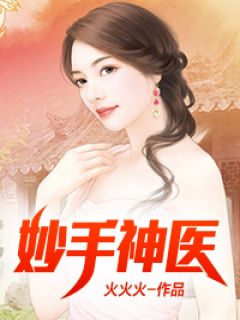男女主角分别是周文标赵丽宏的女频言情小说《菜根谭:汉英对照小说》,由网络作家“洪应明、周文标、周文标、应佳鑫”所著,讲述一系列精彩纷呈的故事,本站纯净无弹窗,精彩内容欢迎阅读!小说详情介绍:16.Neveranticipateothersinseekingwealthnorlagbehindindispensingcharities.宠利①毋居人前,德业②毋落人后,受享③毋逾分外④,修为毋减分中⑤。注释①宠利:恩宠和利禄。此处可理解为利益或名利。②德业:乐善好施的行为。③受享:得到并享用。④分外:超出自己该得的范围。喻不该得的东西。⑤修为毋减分中:修炼德行要有始有终,决不半途而废。今文解译有利可图时,不要抢在别人前面;行善立德时,不要落在别人后面;获享成果时,不要超过自己应得的那一份;修身养性时,不要分心也不要半途而废。EnglishTranslationNeveranticipateothersinthefaceof...
《菜根谭:汉英对照小说》精彩片段
16. Never anticipate others in seeking wealth nor lag behind in dispensing charities.
宠利①毋居人前,德业②毋落人后,受享③毋逾分外④,修为毋减分中⑤。
注 释
① 宠利:恩宠和利禄。此处可理解为利益或名利。
② 德业:乐善好施的行为。
③ 受享:得到并享用。
④ 分外:超出自己该得的范围。喻不该得的东西。
⑤ 修为毋减分中:修炼德行要有始有终,决不半途而废。
今文解译
有利可图时,不要抢在别人前面;行善立德时,不要落在别人后面;获享成果时,不要超过自己应得的那一份;修身养性时,不要分心也不要半途而废。
English Translation
Never anticipate others in the face of fame and wealth. Never fall behind in doing good turns and dispensing charities. When reaping benefit, never intend to receive what you do not deserve to. In cultivating your moral character, never slack off before accomplishment.
3. The mind of a man should be made open and broad, but his talents carefully concealed.
君子之心事,天青日白,不可使人不知;君子之才华,玉韫珠藏,不可使人易知。
今文解译
君子的心事,要像青天白日那样光明磊落,不可对人有所隐瞒。
君子的才华,要像珠宝玉器那样深藏不露,不可让人轻易得见。
English Translation
The heart of a worthy man should be as clear as the blue sky and the bright sunshine, so that everybody can lightly feel it. But on the contrary, his talents should be carefully concealed like jade and pearls, so that nobody can easily find them out.
Going Abroad
— Preface to the Three Canons of Personal Cultivation
Zhao Lihong
Three Canons of Personal Cultivation is a Chinese-English version of Chinese classical literature. In the publications of Chinese traditional culture, this is a set of readers with new style. It not only shows the charming world of Chinese classics, but also provides a learning garden for English readers who are interested in Chinese culture. Readers can read the canons in two ways, either from Chinese to English or from English to Chinese. Both Chinese readers who are learning English and foreign readers who are learning Chinese are enabled to get the pleasure of reading them.
The Roots of Wisdom, Meditative Notes in Solitude and Fireside Talk at Night are the three famous books successively appearing in the Ming Dynasty (1368-1644) and the Qing Dynasty (1644-1911), with subjects mainly on moral cultivation and inspirational exhortations on doing good and working hard, and therefore known as the Three Canons of Personal Cultivation out of their unparalleled status in books of the same kind and influence among the intellectuals and ordinary people.
In the long history of China, cultural development of each era has its own creative literary form and insurmountable height, thus becoming a cultural mark of the time, the same those of the dynasties of Ming and Qing. During more than five centuries, the novels and fictions are of course the primary literary identity of the dynasties, and the collections brimming with human wits and revealing the ways of the world and the compilations of previous classical works, ancestors’ quotes and their developed writings must be the next. Through these works and writings we see clearly that the excellent literatiare really the backbone of Chinese classical culture, and that the crystallization of spirit and emotion they created in words is one of the most vivid parts of Chinese civilization. As the breeders of the civilization of that times, even when the general moves were getting worse and worse they would remain faithful to filial piety and fraternal duty; even when in an acquisitive time they would remain indifferent to fame and wealth; even when content with their official careers they would remain preoccupied with the misery consciousness; even when coming across unexpected occurrences they would remain unruffled and take themcalmly; even when the state was in peril they would remain loyal; even when having enough food and clothing they would remain concerned about the pain of labor; even when living a poor life they would remain disposed to bask in the poetic mood between mountains and rivers. — All these refined qualities are the precious spiritual wealth the excellent literati handed down to us later generations.
The short sketches contained in the Three Canons of Personal Cultivation are all with distinctive themes, clear-spoken, similar in style, easy to read, and full of the rhythm of poetry and fluency of prose. So far as the form is concerned, these sketches belong to a kind of maxims literarily beautified with a manner of seemingly like but actually not a poem or seemingly like but actually not a prose, normally composed of two sentences or two paragraphs adorned with antitheses, couplets and other rhetoric devices to achieve the beauty of balance and harmony, and with its writing style lying between maxim and prose. The collections with such writings are called clear-and-upright sketches, usually there being two ways of compilation, classified or non-classified, either freely with subject matter or loose in layout, in which the pieces collected vary from nearly one hundred to several hundreds, and Chinese characters used in different pieces vary from seven or eight to more than a hundred, and the contents arranged cover Chinese classics and folk culture, mostly related to the sayings derived from the theories of Confucianism, Taoism and Buddhism. They are short in length, vivid in format and elegant in expression, and therefore praised by Mr. Lin Yutang (a famous modern Chinese scholar) as “a mini-sketch of sketches”.
The praiseworthiness of the Three Canons of Personal Cultivation is as obvious as this: instead of simply quoting the original sayings, the three authors, by applying their rich learning and cultivation, profound knowledge, dialectical thinking, grave and stern expressions, thought-provoking warning, meditative enlightenment and self-awareness, turned out their sketches in the least paradoxes to exemplify the extracts from the classical works and folk culture, and gave prominence to the pieces well matched with relevant scene, sight, circumstances, background or landscape, thus achieving the effect of being pleasant to readers’ eyes and minds. Their endeavors fully annotate the cultural deposits and humanistic sensibilities of the traditional literati, and thus enable us to have the opportunity to see a clear picture of the personal cultivation of the ancients, and make us feel more pleasure and intimacy than ever in reading the famous aphorisms of ancient classics.
10 years ago, when Mr. Zhou Wenbiao’s The Roots of Wisdom in Chinese-English version was about to be published by Shanghai People’s Publishing House, I wrote a preface for him. As I know, Mr. Zhou has been unceasingly spending most of his spare time on translating and compiling Chinese classics in English for more than ten years, and has made an active scrutiny into the modes of presentation. This time, he and Baihuazhou Literature and Art Press jointly plan to issue the Three Canons of Personal Cultivation in the form of three-in-one packing, which shows how much time and energy he has devoted in this respect. Mr. Zhou is a member of Shanghai Writers Association, and I am proud to have such a colleague who has been working so tirelessly to introduce Chinese traditional culture to the world. Here I’d like to extend my hearty congratulations on his successful publication of the Chinese-English Three Canons of Personal Cultivation, thinking that it is a positive attempt for the sketches of the Ming and Qing Dynasties to go abroad. Furthermore, I’ll look forward to seeing his more new works to be published in the near future.
It’s my pleasure to write this preface as above.
Four-Pace Study in Shanghai
July, 31st 2018
13. Step aside one pace for others when the path is narrow and when you are fine fed, share three-tenths of your food with others.
径路窄处,留一步与人行;滋味浓的,减三分让人尝。此是涉世一极安乐法。
今文解译
道路狭窄的地方,要想着让一步给人行走;遇有好吃的东西,要想着匀三分与人共享。这些都是立身处世最安全、最令人愉快的方法。
English Translation
Step aside one pace for others when you are on a narrow path. Share three-tenths of your food with others when you are fine fed. This is the best way for you to ensure safety and attain happiness in social intercourse.
6. Harmony and happiness are agreeable to both Nature and human beings.
疾风怒雨,禽鸟戚戚①;霁日光风②,草木欣欣。可见天地不可一日无和气,人心不可一日无喜神③。
注 释
① 戚戚:忧愁悲哀之状。
② 霁日光风:雨过天晴的明朗景象。
③ 喜神:喜悦的神态,欢快的心情。
今文解译
狂风暴雨中,鸟兽都凄惨无比;天气晴朗时,草木都生机勃勃。由此可见,天地间没有一天是可以不安宁的,人的心情没有一天是可以不愉悦的。
English Translation
When the wind rages and the rain pours down, even the birds and animals are caught in tragedy. But when the sun comes out shining and the wind turns mild, the very grasses and trees are all immersed in delightfulness. Thus it can be seen that in Nature — not a single day could pass peacefully if celestial and terrestrial forces fail to go in harmony; and in the world of men — not a single day could be spent well if people are deprived of happy mood.



最新评论